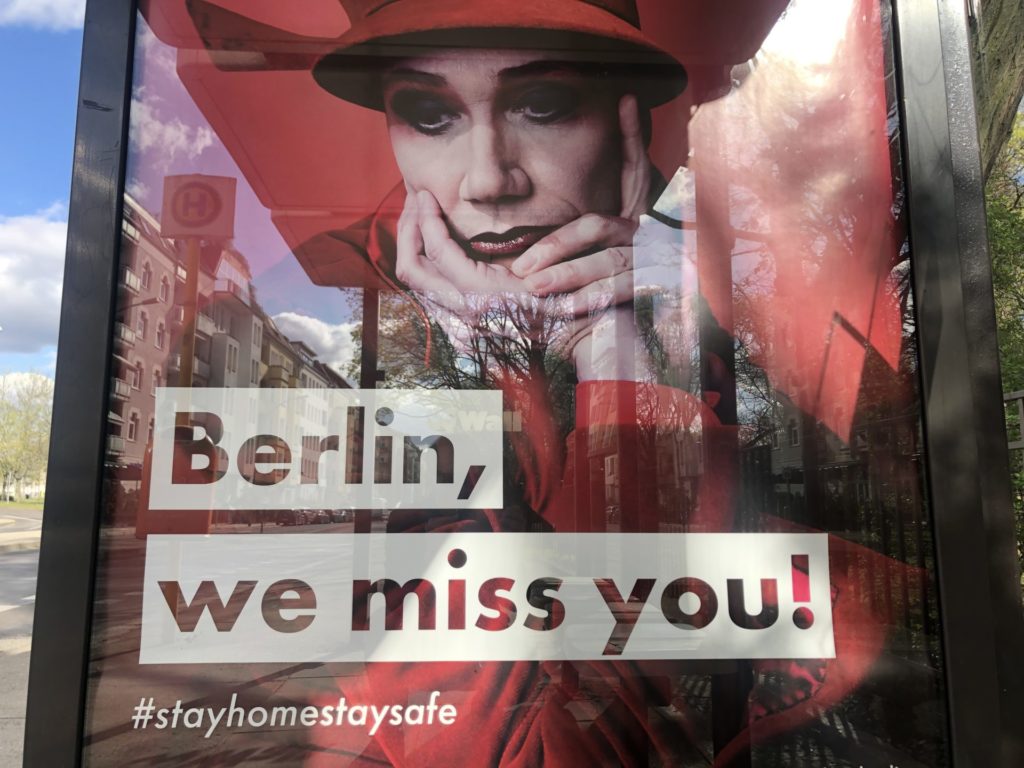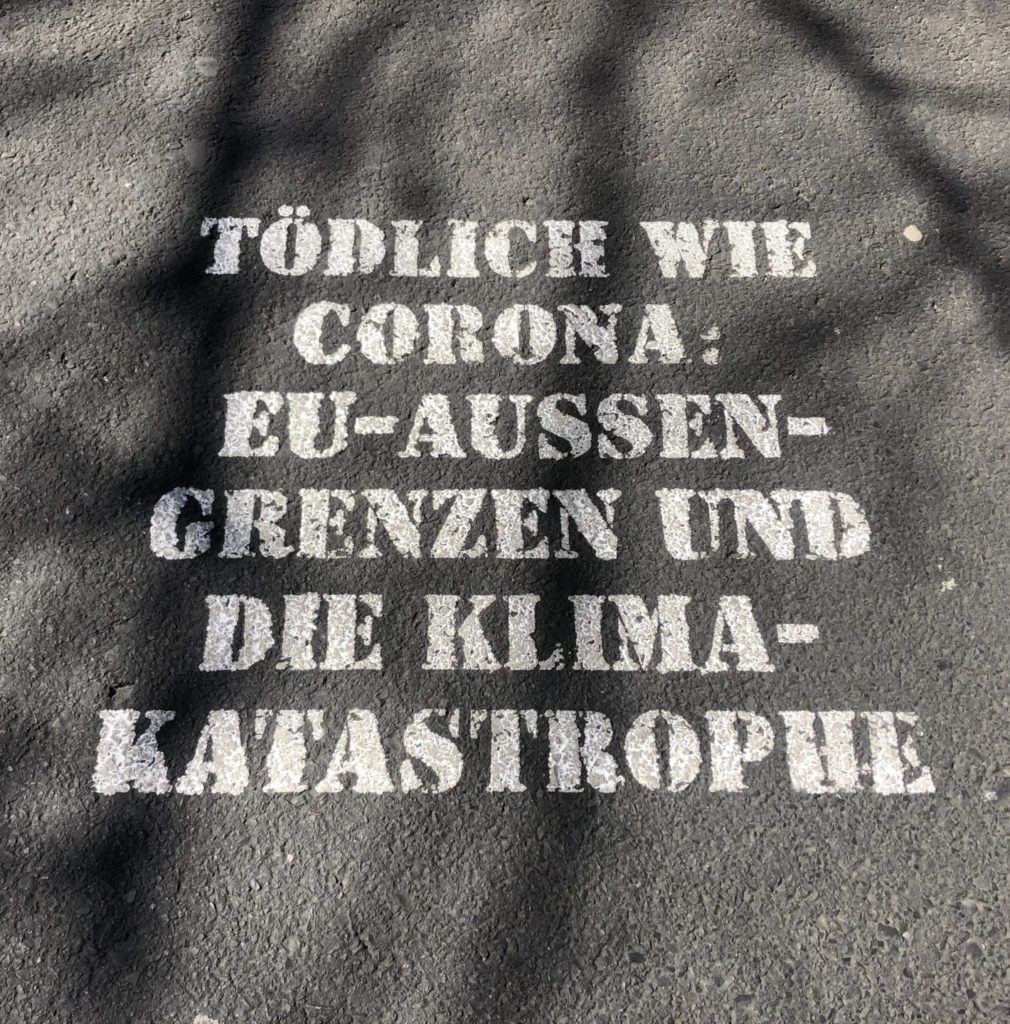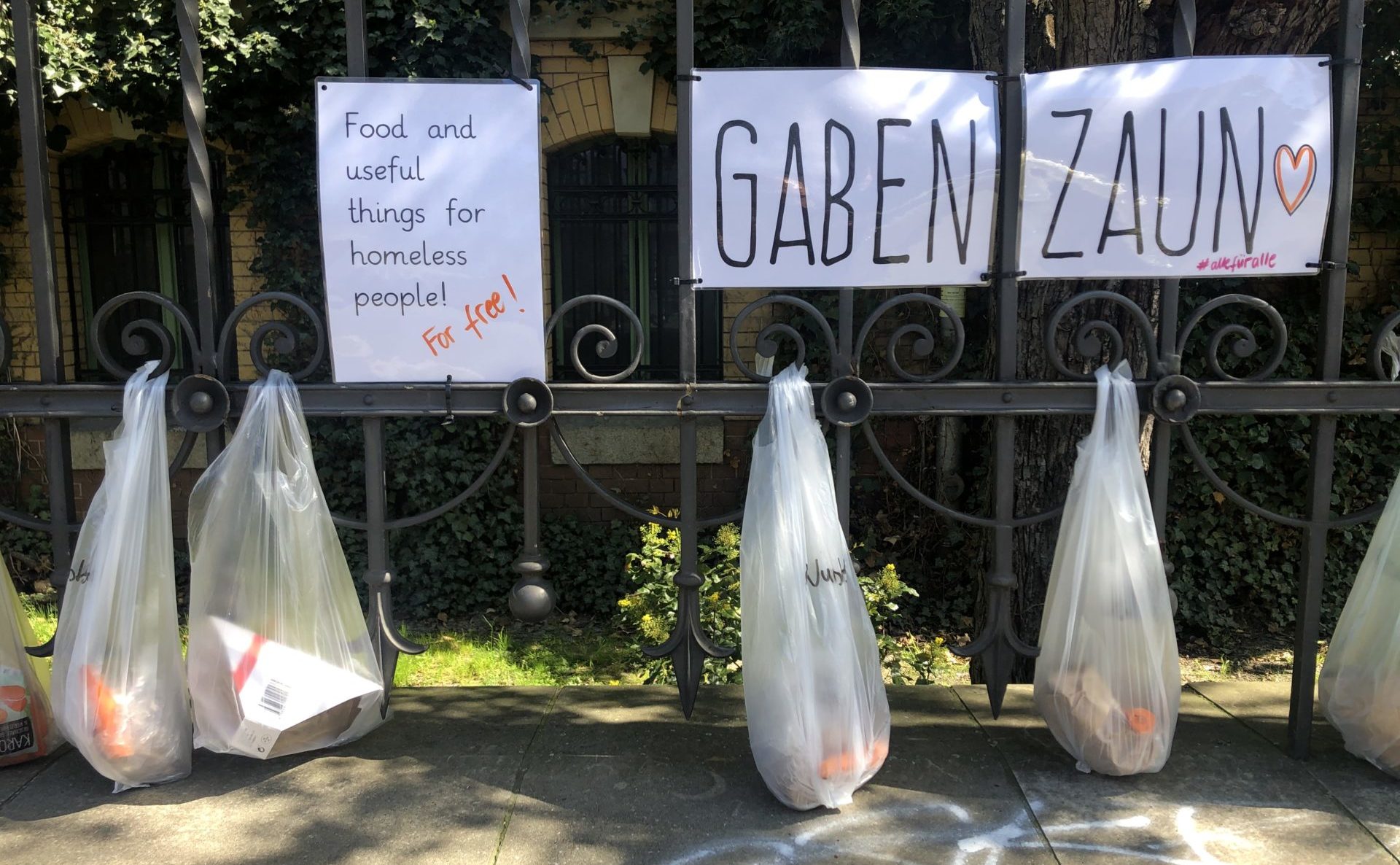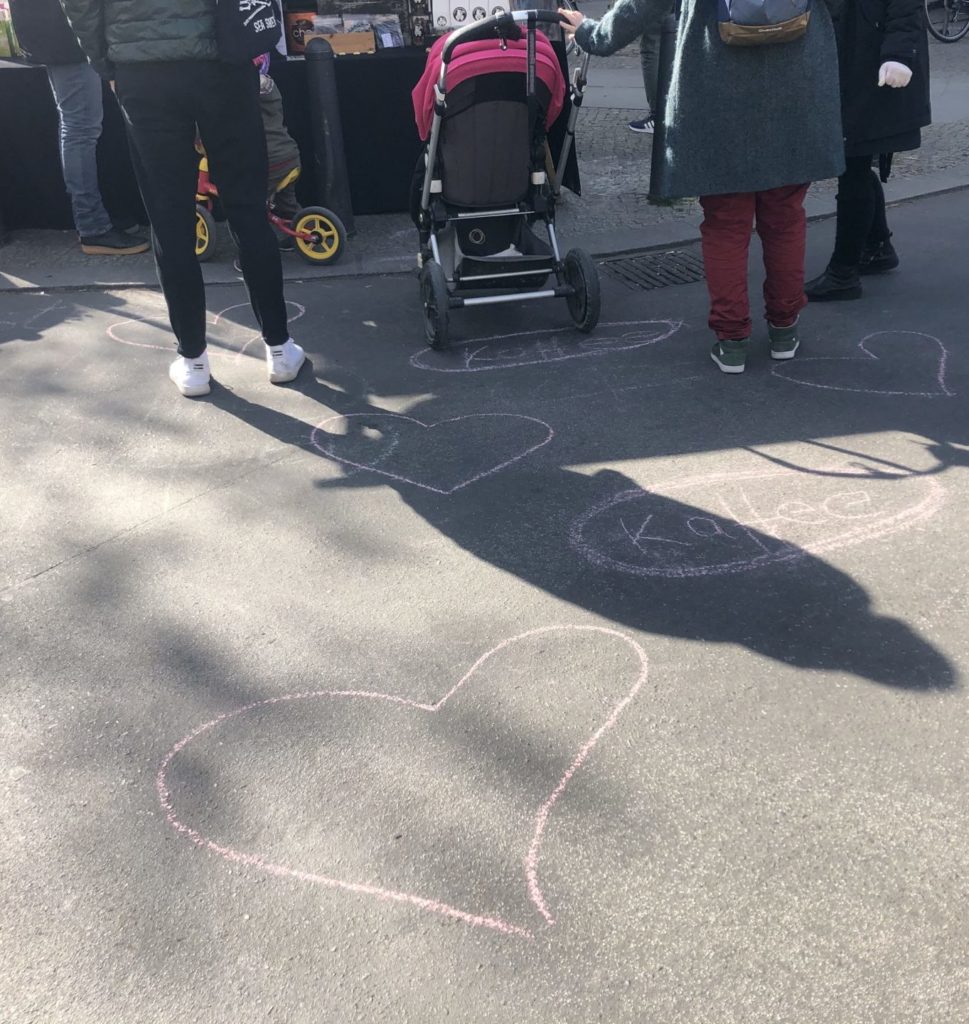What can we learn during Covid-19-pandemia from Berlin as a city, that is known for its experimental attitude since political unification? The following Blog post by Bastian Lange argues for small scale attempts to learn how to cope with physical distance in the crisis. What is needed, and how can creative labs generate ideas and solutions to improve our lifes?

“Berlin, we miss you”
Berlin is in crisis. The only concern is, what is happening in the now in coping with the immediate crisis. For 6 weeks, the buzzing city is having a rest as mostly all cities have in these days around the world. Surprisingly, the city and its inhabitants are coping well with the lockdown situation: Only a few penalties and demonstrations against the public requirement of the shutdown. People are observing physical distancing as well as the instructions of the politicians.
Since Easter, there is a growing noise coming up on how to exit the shutdown that has been imposed since mid-March. While it is only human, to regain normality, we are becoming aware, that there will be almost no pre-Covid-10 normalities anymore after the crisis, as we are hoping for normality in terms of pre-Covid-19. But the profound newly detected relevance of “big” systemic fields (health, care, education) should go hand-in-hand with reconsidered practices of the small “social needs”. These are expressed in modified self-understanding of behaviour and in altered practices forming everyday social norms.
Existential fear, growing economic stress, social fragmentation for half of the population are changes, that reflect changed rules at borders and movement controls on various geographical scales: We will have to learn anew how to cope not only with Codid-19-induced changes, but also with questions of substantial climate changes and dilution of social justice.

Small-scale help
So far, novel spatial practices have to be invented and developed anew: how can we manage a community based social life in our neighbourhoods, and how can we make our living? These are essential questions for urban based societies. In the midst of great expectation of policy makers and political leaders that govern us through the crisis over these weeks, it becomes increasingly evident, that individual attempts are becoming more and more crucial: practices of giving and caring, moments of direct solidarity across the fence to the next door neighbour, tools of collaboration in non-monetary systems of exchange.
Furthermore, first observations also address psychological questions on how to relate yourself toward the top-down mode of public leadership (official shutdown, restrictions of individual autonomy, freedom, and for activities in public spa es).
Small scale help follows the idea of an intervention that breaks away from the “normal” spatial habits and social routines as we have been practicing them for decades. Small scale interventions can be seen as an experimental form of finding solutions for first-hand social practices on “wicked” problems, based on public learning and “at hands -on”-exploration of problem diagnosis on social, political, economic and physical issues. We somehow have to liberate ourselves from the induced shutdown and find niches and corridors to adjust to the new situations we find ourselves in.

Gift fence
Hands-on actions and small-scale interventions define a responsive way of assessing the challenges of top-down leadership attitudes while bringing in a human action dimension of sharing and participation for developing common solutions into the atmosphere of the current shutdown. Examples are volunteer help in Berlin-Mitte, support your local for local gastronomies, or Helfen.Berlin, that helps small local shops.
Only recently, Makerspaces and small creative labs (e.g. Maker vs. Virus) have begun to make use of their technical equipment and their user-communities, to collaboratively provide prototypical solutions for various masks, infrastructures, and like-wise materials to fight against the virus and to provide active small-scale solutions for health and health security measures, learning, communication, and interaction.

From bottum-up to experimental urbanism
While there is much discussion on fighting Covid-19 with technical solutions, about GPS-tracking, to inform non-infected with potentially infected persons, there is as yet little discussions on self-organized bottom-up ideas on how to inform urban planning and urban life in the coming years. Although arguments against corporate digital solutions are hard to address in these times, we should address cultural and social techniques of caring, acting in solidarity, and learning, as cornerstones of new human centred urbanism.
Post-smart City technologies
Many of these technical-digital ideas are in line with smart-city-technologies and their corporate orientations. They seem to gain wider acceptance without public discourse and legitimization in these difficult days. The time seems to have come for a serious debate in Europe about the social legitimacy of smart-city concepts. Existing digital tools, also for Covid-19 management, must be critically evaluated, and their possible use must be subject to democratic control.
Beyond technical discussions about “contact tracing” versus “geolocalisation”, the aim here must be to critically evaluate the tightrope walk that will be taken when using user related data in the event of an epidemic (and beyond). As an alternative and add-on view, we should address small-scale technologies and practices as we can observe them in Makerspaces, Creative Labs and Open Workshops. They are community-based, work on the basis of “trial and error”, and thus are experimental social labs.
The state-imposed state of emergency is currently leading to a tentative space of experience, which is being further strengthened in Europe by new types of civil society involvements. Such spaces of experiences can be described with what we observe in Makerspaces, Creative Labs and Living Labs, where new instruments of coping with basic needs of society, food, belonging, clothing, learning and mobility are tested out in tentative ways.
The aim will be to combine social and digital prototypes with their application and acceptance in real urban contexts by means of appropriate feedback, iteration, and small-scale acceptance; neighbourhoods city districts are an ideal testing ground for this. The emerging forms of e-learning and the home office are currently changing our understanding of “New Work” and the willingness to travel for it, while new forms of everyday solidarity are expanding our understanding of neighbourhood help and care.
Appendix:
Lange, Bastian (2019): Spaces of Hope (English for “Labs: Orte der Hoffnung?), In: CCB Magazin Berlin, February 2019
Lange, Bastian (2019): Collaborative Spaces of Transformation. In: Actors of Urban Change (Eds.) (2019): Reimagining Spaces, p. 50-53.
Examples in Berlin (among many others) are volunteer help in Berlin-Mitte, support your local for local gastronomies, or Helfen.Berlin.
